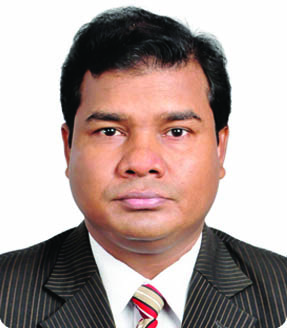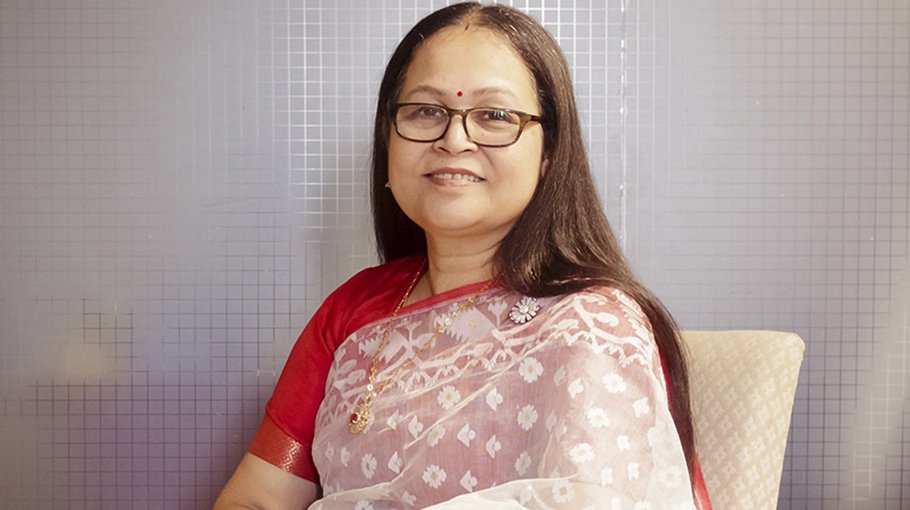Health sector needs robust policy support to ensure healthcare for all
Priti Chakraborty, Chairman, Universal Medical College & Hospital, tells Bangladesh Post

Healthcare should be viewed not just as a service but as a socially impactful business—a sector that not only delivers life-saving care but also creates massive employment, encourages innovation, and contributes to economic development. In an exclusive interview with Bangladesh Post, Priti Chakraborty, Chairman of Universal Medical College and Hospital and Senior Vice President of Bangladesh Chamber of Industries, made a passionate case for serious policy-level intervention in the country’s healthcare landscape.
“Healthcare is a vital part of our daily lives. To ensure access for the majority of our people, the sector must be prioritized through consistent policy support, regardless of political changes,” she said.
Referring to the popular trend of medical tourism, particularly to India and Thailand, she pointed out that the recent restrictions on outbound travel have not resulted in any national health catastrophe. “Thousands are not dying because they couldn’t reach India for treatment. Instead, we’re saving foreign currency. A portion of patients now go to Thailand, but the volume isn’t the same. This shift proves that if we strengthen our domestic healthcare infrastructure, we can become self-reliant.”
She admitted there remains a shortage of international-standard healthcare facilities in many parts of Bangladesh but emphasized that such gaps must be addressed at any cost. “Patients have the right to seek better treatment abroad, but they shouldn't be forced to. The option should exist, not the compulsion.”
Priti Chakraborty expressed concern that while other sectors—like garments and ICT—regularly receive stimulus packages and government incentives, healthcare is almost always left out. “Have you ever seen a special policy designed specifically for the healthcare sector? We operate under significant pressure, with huge investments and operational costs, but never receive the kind of support other sectors enjoy.”
She addressed the criticism often directed toward private hospitals over high costs, stating that quality healthcare anywhere in the world has a price. “If a bill here reaches Tk 5 lakh, families plead for discounts. But those same people won’t hesitate to spend Tk 40–50 lakh abroad for the same treatment. That double standard is hard to ignore. And when you compare our pricing with neighbouring countries, you’ll find our costs are lower—sometimes significantly so—while quality remains comparable.”
Drawing comparisons with India, Thailand, Singapore, and Malaysia, she stressed that their success in healthcare was built on strong policies, professional standards, access to finance, and investment in modern infrastructure and medical technologies. “We need to follow that model—adapt to new technology, build infrastructure, invest in human resources. We already have brilliant doctors, many earning global acclaim. What we need now is structure and policy.”
She also highlighted the urgent need for a national health insurance system to ensure access to timely treatment, especially for low and middle-income groups. “People save money for weddings, land, even consumer goods—but not for their health. They delay going to the doctor until they are in crisis. This culture must change. A simple yearly check-up, especially after age 40, can prevent serious health issues later on.”
While acknowledging recent improvements in healthcare, especially in areas like cardiac care, she pointed out that the country still lags behind in specialized sectors like oncology, neurology, and organ transplantation. Institutional-level investment is required in these areas, and that won't happen without policy support.
She firmly believes that the government alone cannot meet the healthcare needs of over 200 million citizens. “The private sector must be empowered. Look at what the RMG sector has achieved with policy support—over $50–60 billion in annual exports. Even private medical institutions are earning nearly Tk 3,000 crore in foreign currency each year. Imagine what we could achieve with similar backing.”
As Bangladesh approaches its graduation from Least Developed Country (LDC) status in 2026, she warned that challenges will intensify, and the window for reform is closing fast. “This is the moment for bold, forward-thinking policy action. We need to ensure that the health sector is not left behind.”
She also acknowledged that the country is going through a delicate political and economic transition,
with an interim government in place, tariff complications, and shifting trade dynamics with key partners like India and China. “Yes, it's a difficult time for business, but we must not lose direction. Agencies like BIDA have identified healthcare as a sector with great potential. That recognition must now be backed with action.”
In closing, Priti Chakraborty made a heartfelt appeal: “We’re spending over $5 billion every year on treatment abroad. If we could retain even $2 billion of that within the country, imagine the transformation it could bring. The future of healthcare in Bangladesh depends not just on doctors or hospitals, but on vision, professionalism, and most importantly—policy.”



